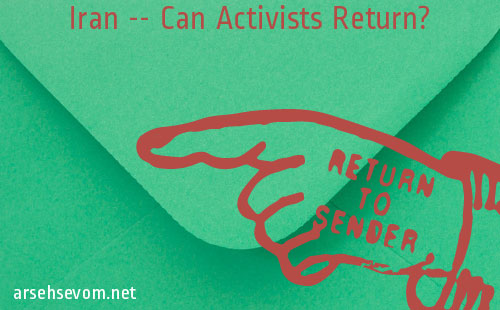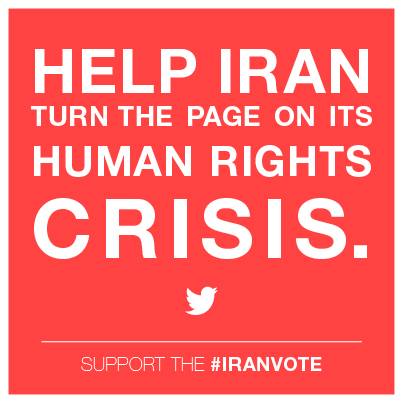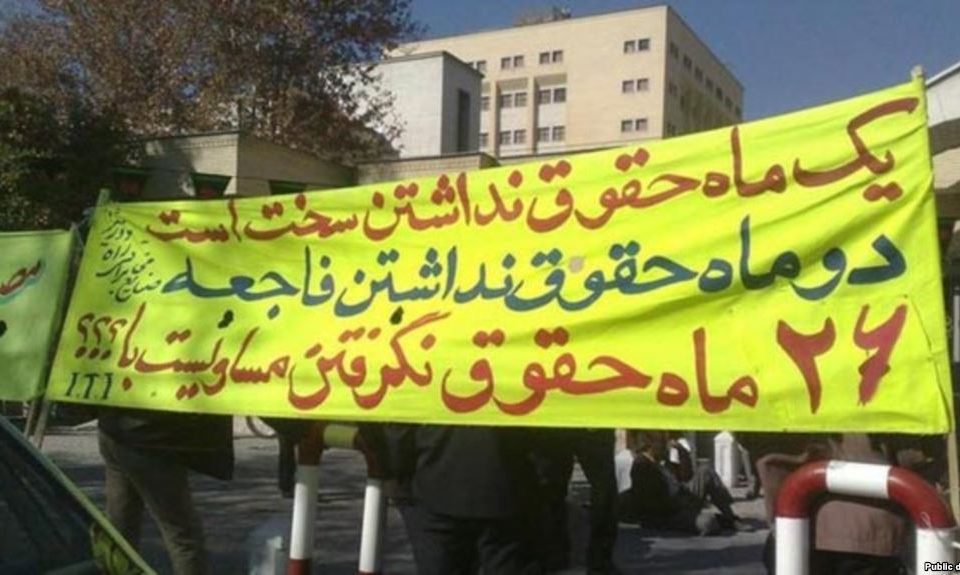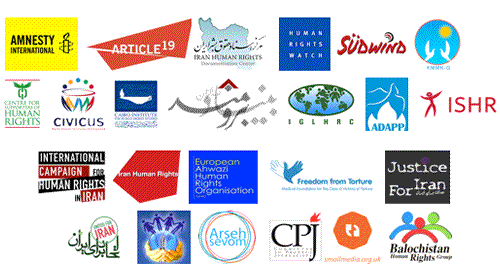
Deepening Human Rights Crisis in Iran
November 18, 2013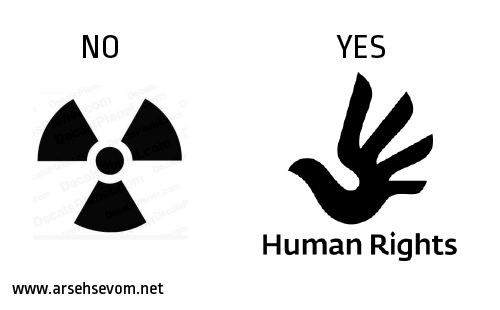
#Iran — Time for Attention to Human Rights
November 29, 2013Arseh Sevom – This morning, Tuesday, November 19, we heard news of a bombing near the Iranian embassy in Beirut. As of this posting, more than 20 people were killed including Iran’s cultural attaché. It’s been more than 100 days since Hassan Rouhani took office. Despite slow progress on human rights, many exiled activists are planning to return. Negotiations over Iran’s nuclear negotiations are about to restart, and Iran’s top negotiator is working to get his country’s message out via social media. Over 25 NGOs and civil rights organizations wrote a letter asking UN representatives to vote to hold Iran accountable for continuing human rights violations. The message: human rights are not negotiable.
By Peyman Majidzadeh
Iranian Exiled Activists to Visit Homeland
Khatami’s presidential term was a good opportunity for Iran’s civil society to rise after years of suppression. Various groups of activists formed at the time with the hope of bringing change and reform. Things were promising, but then dark clouds blocked the sun. “The miracle of the third millennium” came into play, with controversial ideas in head and suppressive tools in hand. Ahmadinejad gave quite extensive power to the Revolutionary Guards and Basij and used them to quash opposing voices. However, suppression escalated after the disputed 2009 elections. Ahmadinejad remained in power and Iran’s authorities cracked down on protesters like never before. Newspapers offices were shut down, journalists and activists were arrested, and political prisoners lived in a poor situation. Therefore, many activists found no better way than fleeing their homeland in fear of being arrested and persecuted. Iran Human Rights Documentation Center published a 60-page report “Why They Left – Stories of Iranian Activists in Exile” [en], explaining the full background of the issue.
There is no accurate report on the number of Iranians living outside the country, let alone the number of Iranian activists on exile. Mehrnews [fa] reported on September 2012 that the United States of America hosts the highest number of Iranians: 1,400,000 individuals. According to the report, US was followed by United Arab Emirates, England, Canada, Germany, France and Sweden. However, semi-governmental Farsnews [fa] put the objectivity of the report under question only two days later, claiming that the figures were exaggerated. No one knows the exact number, but it is obviously considerable.
Regardless of the number of exiled activists, the situation seems to be better after Rouhani’s victory in recent elections. The new government began its term with open arms for the said group. Rouhani said in a New York hotel in September: “This is the right of every Iranian, to visit their homeland.” [en] Now, for the first time after 2009 presidential elections, a number of exiled activists have decided to return to their country, “feeling” that things have been improved. One of them, Seraj Mirdamadi, said over the phone to Reuters:
“I entered Iran on the night of Rouhani’s inauguration and since then I’ve seen signs that have only confirmed my original feeling.”
Some others also intend to return. Most of them did not leave their homeland willingly. After all, a journalist or activist needs his/her country’s context to write or to act in. What can a writer do without hearing the mother tongue? What can an activist do without being a part of the situation he/she wants to improve? Ebrahim Nabavi, the famous Iranian satirist, explains the issue in his sincere words for The Guardian [en]. He wishes to return to Iran, for the same reason he left it: to produce, to act, to bring change, to improve.
“Now I feel that I need to return to my own country. I certainly don’t yearn for prison walls, and not even delectable Persian cooking is what I miss. What I long for is the Persian vocabulary; I long for the language in which I have written 70 books.”
More recently, Foreign Ministry Spokesman Hassan Qashqavi said Iran is planning to establish a committee to bring political activists back to the country, Shargh Daily [fa] reported. Qashqavi said that Iran puts no limitation on consular services to Iranian exiled activists. He also added there is no reason for the activists to be afraid of returning to Iran. If so, Iran can expect an experienced and talented potential to be utilized in the near future. The exiled activists know their job and, more importantly, they have the right to return to their country and work in a peaceful environment to make homeland a better place.
#Iranvote
While there is optimism, there is also a deepening human rights crisis. Executions continue unchecked with ethnic minority activists in particular danger. More than 25 civil society and human rights organizations, including Arseh Sevom, signed a letter asking UN representatives to vote for resolution A/C.3/68/L.57 on the promotion and protection of human rights in the Islamic Republic of Iran.
A campaign was launched to bring awareness to the issue via social media. United for Iran has created a number of images to be shared and is calling on people to use the hashtag #iranvote.
Geneva Talks: Game of Thrones
Javad Zarif speaks to the world, reminding us that “rights cannot be granted so they cannot be seized.” They are something we are born with.
The new round of Iran nuke talks [en] ended with no concrete agreement. John Kerry surprisingly joined the circle and as a result, counterparts from Germany, UK and, of course, France joined in. All these caused the talks to take longer and things to get more complicated than expected. Finally, the agreement was not reached. Everyone played his role. Many blame France’s Laurent Fabius who called the proposed agreement a “fool’s game”. John Kerry said Iran walked away from nuclear deal [en] and Zarif responded in Twitter:
Mr. Secretary, was it Iran [or France] that gutted over half of US draft Thursday night? And publicly commented against it Friday morning?
In another tweet he said:
No amount of spinning can change what happened within 5+1 in Geneva from 6PM Thursday to 545 PM Saturday.But it can further erode confidence
— Javad Zarif (@JZarif) November 11, 2013
And of course, we have in mind the role of Israel and Saudi Arabia (which is even ready to help Israel on possible attack to Iran [en]).
The Supreme Businessman
Can anyone ever give an exact answer to the question? Definitely not. A supreme leader who has survived more than two decades of uncertainty knows his job well enough to keep his secrets. However, Reuters [en] recently published an extensive report on the assets of the Iran’s most powerful man, Ali Khamenei. According to the report, he controls about $95 billion in property and corporate assets, a high percentage of which achieved through property seizures.
Some observers question the objectivity of the report, arguing that it is exaggerated. But regardless of who is wrong or right, it was released around the time when an agreement over Iran’s nuclear file was highly probable. Coincidence?
100 Days and Nights
100 days passed from the beginning of Hassan Rouhani’s term. After his victory in elections, he promised to bring moderation to Iran’s political sphere, save the economy and sign a nuclear agreement to have the sanctions lifted. Now, after 100 days, he came close to the agreement (with many possible impacts on international sanctions [en] and, therefore, Iran’s economy) and took positive steps in foreign policy, although he couldn’t take any serious action to improve human rights’ situation inside the country. Way to go Mr. President. See more details here [en].


